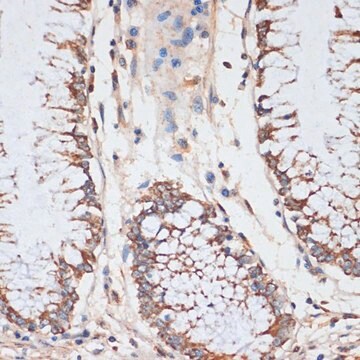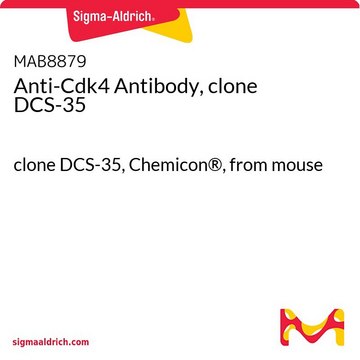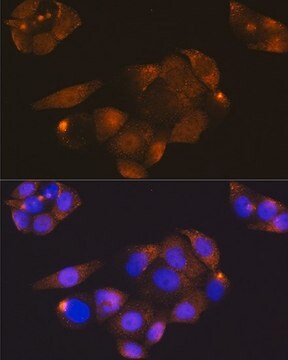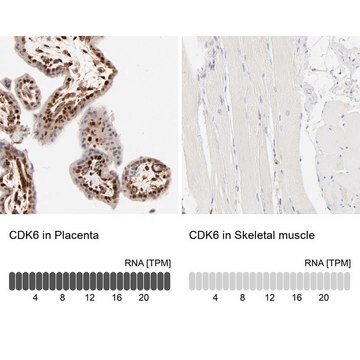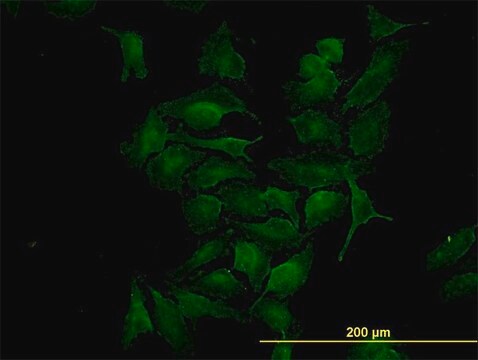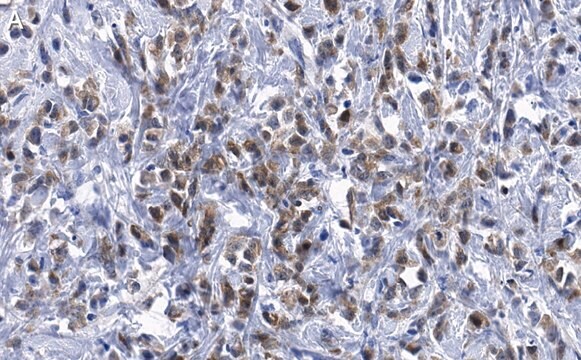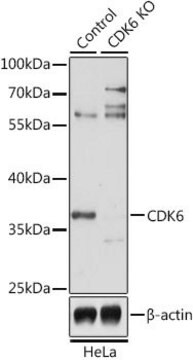Kluczowe dokumenty
C8218
Monoclonal Anti-Cdk4 antibody produced in mouse
clone DCS-31, ascites fluid
About This Item
Polecane produkty
pochodzenie biologiczne
mouse
Poziom jakości
białko sprzężone
unconjugated
forma przeciwciała
ascites fluid
rodzaj przeciwciała
primary antibodies
klon
DCS-31, monoclonal
masa cząsteczkowa
antigen 33 kDa
zawiera
15 mM sodium azide
reaktywność gatunkowa
rat, mouse, human
metody
immunocytochemistry: suitable
immunoprecipitation (IP): suitable
microarray: suitable
western blot: 1:1,000 using a cultured human tumor cell line extract
izotyp
IgG2a
numer dostępu UniProt
Warunki transportu
dry ice
temp. przechowywania
−20°C
docelowa modyfikacja potranslacyjna
unmodified
informacje o genach
human ... CDK4(1019)
mouse ... Cdk4(12567)
rat ... Cdk4(94201)
Powiązane kategorie
Opis ogólny
Specyficzność
Immunogen
Zastosowanie
- immunoprecipitation of human melanoma cell line.
- immunofluorescence of fibrosarcoma cells.
- western blot analysis
- immunofluorescence
- immunohistochemistry
Działania biochem./fizjol.
Oświadczenie o zrzeczeniu się odpowiedzialności
Nie możesz znaleźć właściwego produktu?
Wypróbuj nasz Narzędzie selektora produktów.
polecane
Kod klasy składowania
10 - Combustible liquids
Klasa zagrożenia wodnego (WGK)
WGK 3
Temperatura zapłonu (°F)
Not applicable
Temperatura zapłonu (°C)
Not applicable
Wybierz jedną z najnowszych wersji:
Masz już ten produkt?
Dokumenty związane z niedawno zakupionymi produktami zostały zamieszczone w Bibliotece dokumentów.
Produkty
Quantitative and qualitative western blotting to validate knockdown by esiRNA. Sigma-Aldrich.com
Nasz zespół naukowców ma doświadczenie we wszystkich obszarach badań, w tym w naukach przyrodniczych, materiałoznawstwie, syntezie chemicznej, chromatografii, analityce i wielu innych dziedzinach.
Skontaktuj się z zespołem ds. pomocy technicznej